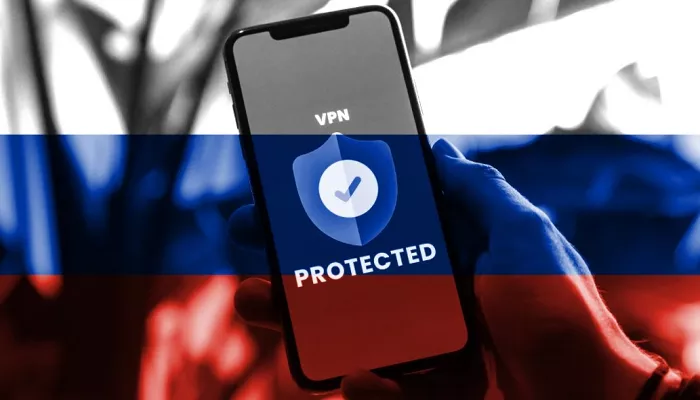In response to the growing demand for online freedom, Russia is intensifying efforts to block access to Virtual Private Networks (VPNs), but a rising number of citizens are using this technology to bypass government censorship and access blocked information. The Russian government’s attempt to control the flow of information regarding the ongoing conflict with Ukraine has resulted in a surge in VPN usage, as citizens seek ways to access social media platforms and news sites that are now blocked.
A Surge in VPN Downloads Amid Censorship
In recent weeks, the Russian government’s telecom regulator, Roskomnadzor, has pushed for Google to remove over 36,000 URLs related to VPN services. According to Surfshark, the spike in requests occurred primarily after the Russian government took steps to block major platforms like Facebook, Twitter, and YouTube. The Russian authorities’ decision to enact a “fake news” law has led many platforms to withdraw, further fueling the demand for VPNs among the Russian population.
A report from global security company SafetyDetectives revealed that, following the Kremlin’s move to block Facebook, Twitter, and other platforms on March 4, demand for VPNs skyrocketed, reaching an all-time high. The surge in VPN downloads has been linked to Russia’s increasing efforts to restrict access to crucial platforms, such as social media and Russian-language news outlets.
A History of Internet Censorship in Russia
The Russian government’s efforts to control the internet began in earnest after the invasion of Ukraine on February 24. Initially, the government slowed down social media platforms like Facebook and Twitter and began blocking specific content. However, the recent move to fully block these platforms is a more drastic measure aimed at limiting the spread of information about the war.
VPNs, which provide users with the ability to hide their online identity by masking their IP address and location, have become essential for many Russians seeking to bypass government restrictions. SafetyDetectives research showed that since the beginning of the invasion, VPN demand in Russia has surged by 462%. This surge includes both paid and free VPN services, with experts suggesting that the demand for free VPNs may be even higher.
VPNs as a Tool for Privacy and Access
VPNs are not just tools for circumventing censorship; they also offer privacy and anonymity online. By using a VPN, Russian citizens can continue to access information and communicate freely without their activities being monitored or tracked by the government. This has become increasingly important as censorship tightens, and platforms like Facebook, Twitter, and YouTube are being blocked or restricted.
The growing demand for VPNs in Russia is not an isolated phenomenon. Mobile analytics firm Apptopia reported that over 400,000 Russians are downloading VPN apps daily, a staggering figure that underscores the increasing reliance on these tools to stay connected with the outside world.
Global Impact and the Role of Google and Apple
The rise in VPN usage in Russia is one of the largest increases ever seen in the region, surpassing even the surge in downloads observed in Hong Kong after the implementation of China’s national security law in 2020. As economic and political sanctions isolate Russia further, Google and Apple are faced with a dilemma. Both companies must continue to operate in Russia despite pressure to comply with local laws and restrictions, including the crackdown on VPN services.
In the past, the Russian government has attempted to limit VPN usage. A 2017 law required VPN providers to block access to websites on a government blacklist, and by 2019, the government began enforcing the rule, requesting major VPN services like Hola VPN, ExpressVPN, NordVPN, and others to comply. Failure to comply with these demands led to the banning of several VPN services in Russia in 2021.

